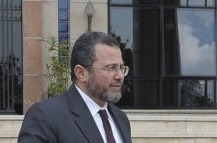The Ministry of Investment formed a committee headed by minister Dalia Khorshid to study proposed amendments to the Capital Market Law promulgated by Law No. 95 of 1992.
The committee shall examine the proposed amendments to the law by the Egyptian Financial Supervisory Authority (EFSA), and various observations by stakeholders, as well as hold a community dialogue to shape the final amendments within one month from the date of the decision.
Khorshid said that the law’s amendments come as part of the ministry’s plan to implement the legislative reform agenda to prepare the investment climate to facilitate the financingofprojects, in collaboration with all relevant ministries and authorities in order to pass laws that have been negotiated over with the business community.
The committee includes the chairperson of the EFSA, chairperson of the General Authority for Investment and Free Zones (GAFI), and representatives from the Central Bank of Egypt (CBE), the ministries of justice, finance and legal affairs, the House of Representatives, and the Egyptian Exchange (EGX).
According to Sherif Samy, chairperson of the EFSA, the law’s amendments include creating the first union for companies operating in the field of securities similar to unions that regulate other financial activities under banks and insurance laws. This should contribute to the development of the activity and professional practices, as well as the adoption of training initiatives and expressing opinions about relevant legislations.
Amendments include posing fees for securities’ registrations in the EGX, which encourages small- and medium-sized enterprises (SMEs) to register their shares after reducing the required fees.
Amendments target protecting the rights of minority shareholders in cases of acquisition, and increasing the fine on whoever violates regulations of acquisition.
For the first time, the amendments project addresses regulating the future stock exchange, in order to diversify financial tools in Egypt. It also enhances dealers’ ability to cover capacities against price volatility and the ability to predict future market prices. Additionally, it facilitates and stimulates trading assets that are being contracted through developing regulations and controls necessary for such kind of stock exchanges, and setting a definition for contracts that are traded on the stock exchange such as futures contracts, options contracts, and swaps.



